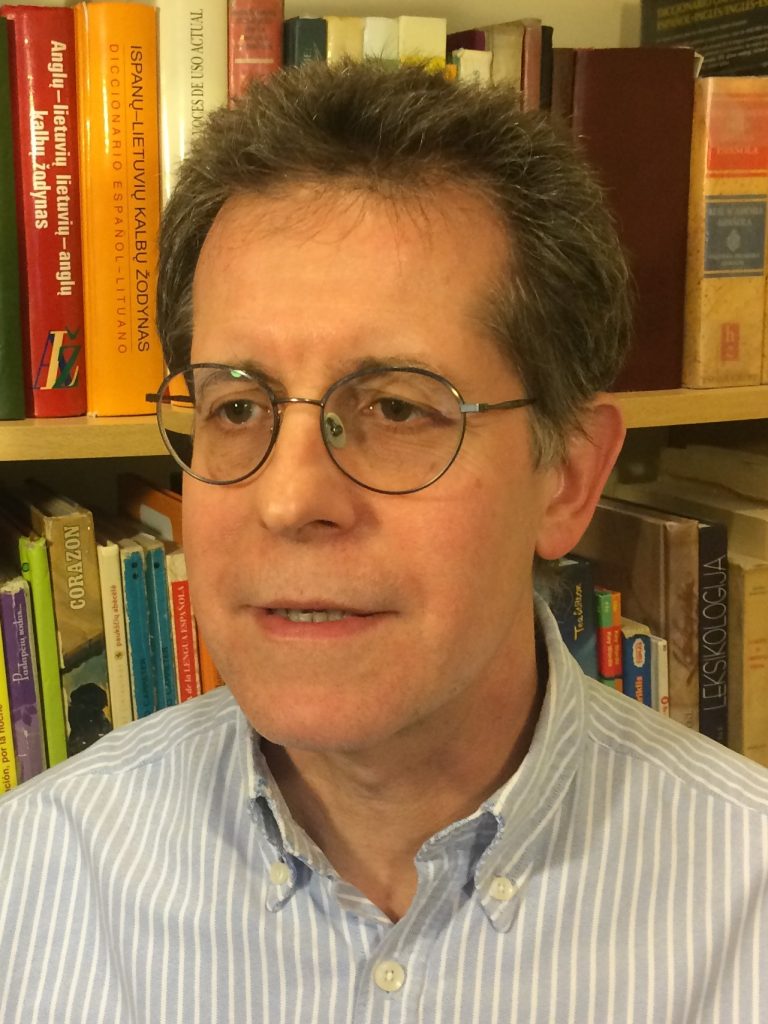The “9 Months, 9 Universities” webinar series is back! Discover the richness of one language through the prism of another.
|
21 Oct 2024|
21 Oct 2024The “9 Months, 9 Universities” webinar series is back with a lecture on the expressive correspondences between Spanish and Lithuanian. The session will be held in Spanish.
Learning or teaching a foreign language involves, at least initially, establishing expressive correspondences between the L1 and the L2. But one soon realises that each language, although translatable into other languages, is a unique, peculiar system of expression, from the phonetic level to the discursive level: apart from different ways of saying, one learns constructions whose syntactic structure differs markedly from the other language, although they express (almost) the same thing, lexical combinations which correspond to a single word in the other language and vice versa, or simply to different lexical combinations, and words or expressions which do not exist in the other language… This discovery almost always produces a feeling of difficulty and perhaps even rejection. But it is precisely this confrontation of expressive systems that allows us to discover the richness of each language and to appreciate that it is where a language is difficult that it becomes more interesting and even more beautiful, and that the sometimes costly mastery of these aspects not only enriches learners/teachers, but also brings them personal satisfaction. In this presentation, with concrete examples of confrontation of expressive systems, the aim is to encourage a positive attitude towards the difficult aspects of the language being learnt. Because appreciating diversity means appreciating the richness of languages (and deepening linguistics, of course).

Speaker
Alfonso Rascón Caballero (Madrid 1964), PhD in Hispanic Philology, is an Assistant Professor at the Institute of Languages of the Faculty of Philology of the University of Vilnius, where he has been working since 1996. He has always taught Spanish as a FL, but he also teaches Spanish Phonetics, Morphology, Lexicology and Lexicography, Spanish Literature and Analysis of Literary Texts. His students have been and are mostly Lithuanian. He published the printed Lithuanian-Spanish Dictionary in 2002 and since 2022 he has been compiling the online Lithuanian-Spanish dictionary (now there are about 3300 entries with the most basic vocabulary). He has publications in the field of ELE didactics, including a comprehensive grammar of Spanish in Lithuanian, but mainly in the field of bilingual lexicography. This summer De Gruyter has published his monograph in English on the lexicographical example (The theory and practice of examples in bilingual dictionaries). Thus, the two main converging academic interests are Spanish didactics and lexicography.
9 Months, 9 Universities is a series of guest lectures that focus on specific topics related to language and culture and target mainly graduate and postgraduate students as well as Early-Stage Researchers and lecturers interested in these topics. The lectures are intended to generate awareness and appreciation for the topic of multilingualism as well as an understanding of the many areas of our lives that are influenced by language.